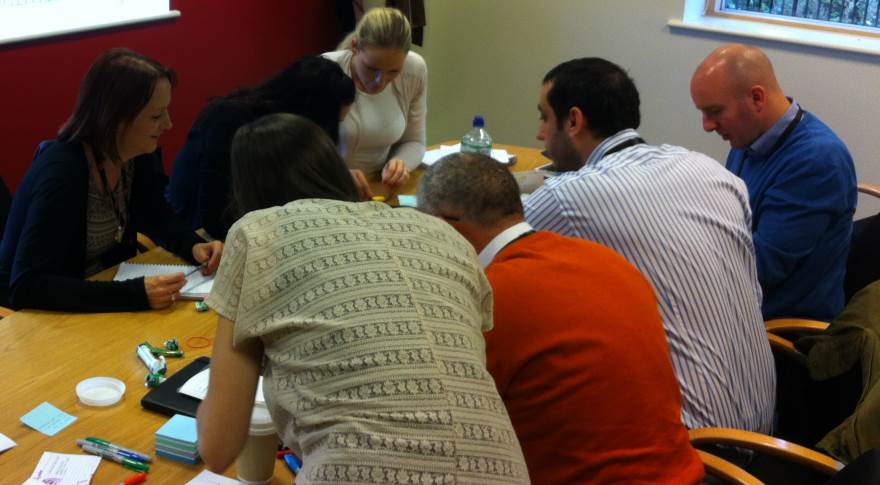What is the meaning of scrum? (Sounds like a variation on a Monty Python film). What does scrum mean? Is it an acronym?
In brief, the software development term ‘scrum’ is a lightweight framework for developing, delivering, and sustaining complex products.
Let’s look at that in a little more detail.
Here are the facts.
What Does SCRUM Stand For?

Search the Internet for the term ‘scrum’ and you’ll get over 3.5 million results. A number of those results return the term SCRUM in all capitals. This leads some to believe that it’s an acronym. That the individual letters must stand for something. But actually, they don’t. They never have.
So, why do some people write scrum in capital letters? One theory is that they’re copying one of Ken Schwaber’s original articles on scrum. Ken wrote an article for OOPSLA 95 that seems to have provided the term scrum in block capitals.
So, is scrum an acronym?
No.
As the guys on TV show Myth Busters might say – myth : BUSTED!
Why the Name ‘Scrum’?
The term scrum originated in an article published in the Harvard Review titled “New New Product Development Game” by Hirotaka Takeuchi and Ikujiro Nonaka.
The authors described a new approach to product development. They called this the holistic or rugby approach and described how ‘… the whole process is performed by one cross-functional team across multiple overlapping phases, where the team “tries to go the distance as a unit, passing the ball back and forth”.’
Scrum is a metaphor rather than an acronym.
So, What Does Scrum Mean?
The scrum guide contains a simple definition of scrum:
Scrum is a lightweight framework that helps people, teams and organizations generate value through adaptive solutions for complex problems.
Need a little more detail? Try this:
Scrum Provides a Better Way of Working
Scrum is a process framework for teams that collaborate to develop a product. It doesn’t tell you exactly what to do under every circumstance. It’s not a methodology. Rather, it’s a framework upon which you can apply your chosen tactics or techniques.
Product development is done incrementally, with each part building upon prior parts. Working this way:
- Reduces waste
- Increases delivery of value
- Encourages creativity
- Enables teams to respond to feedback and change.
These are just a few of the benefits of scrum and part of the reasons why organisations adopt scrum.
For a Better Scrum Meaning
As promised, this article is short. For a fuller understanding of scrum, the definitive resource is the scrum guide. It’s only 14 pages long and a model of clarity.
If you still want to read more, there are hundreds, if not thousands, of publications about scrum. But be cautious. Scrum evolves and a lot of available publications are already out of date. Luckily, there’s a simple rule :
Leave a Reply